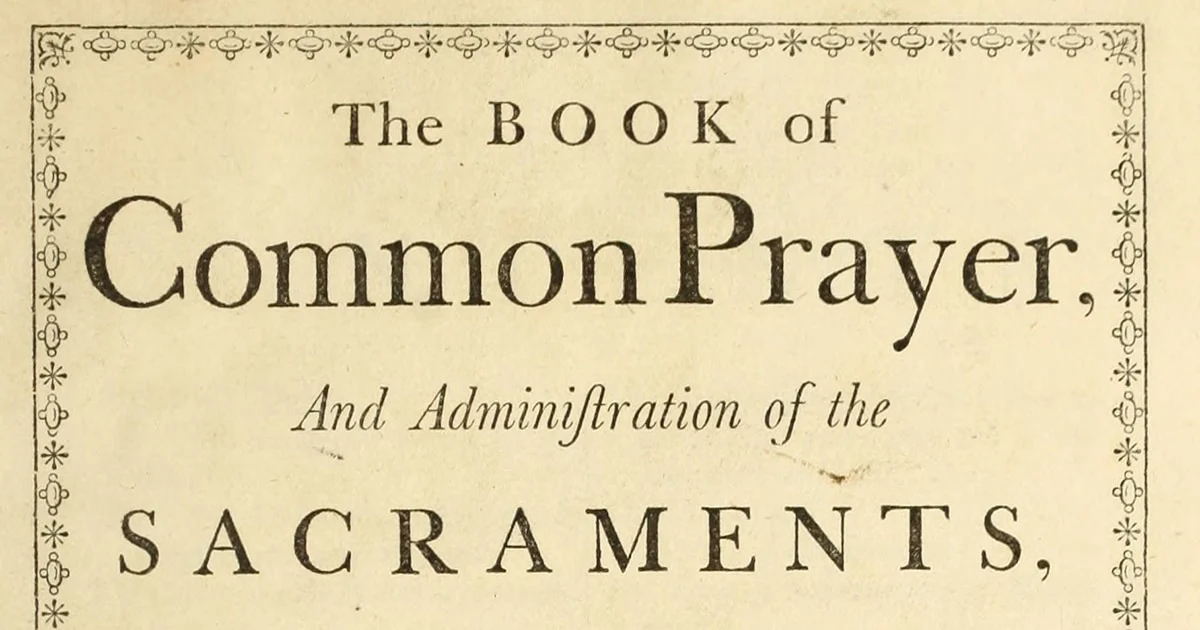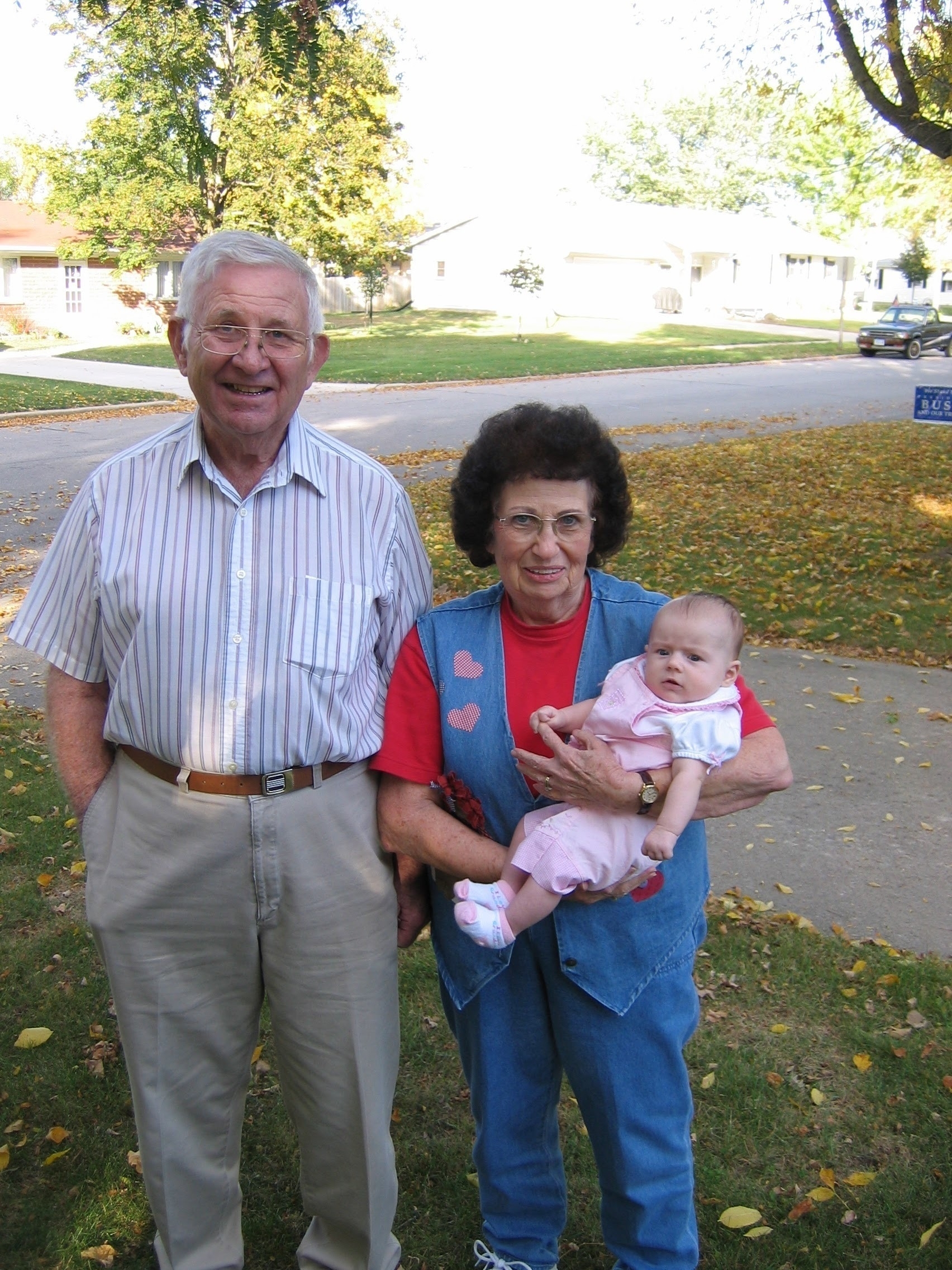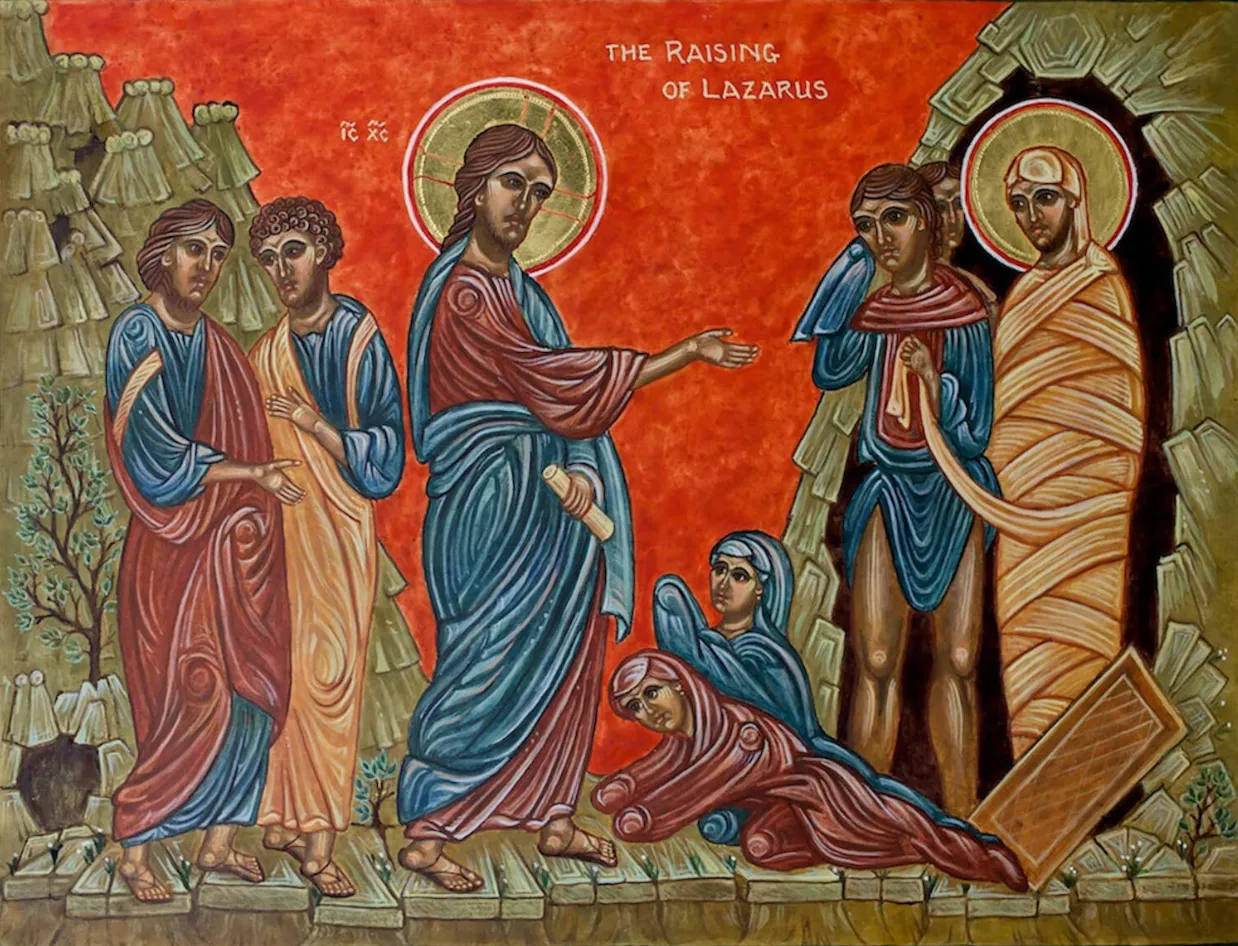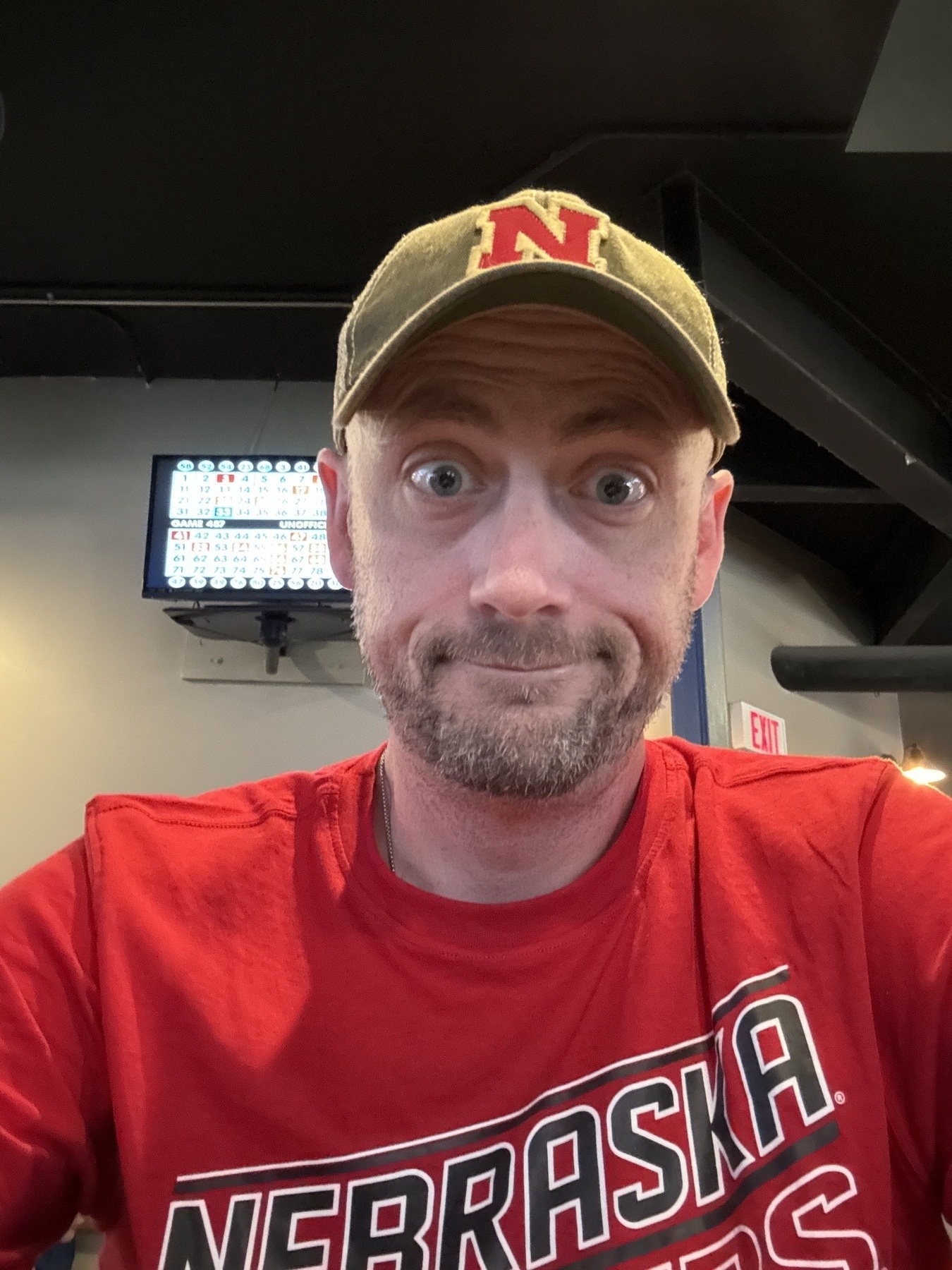Category: Longform
You are viewing all posts from this category, beginning with the most recent.
A few thoughts on formation
Sunday in an adult forum discussion at church we talked about how our theology is formed by prayer, and our prayer shaped by our singing, and today that leads me down the rabbit hole thinking about formation.
When I was in first grade my church started an AWANA program. Being the over-achieving type, I started with the kindergarten-level book, started memorizing bible verses, caught up the year I’d missed, and kept memorizing all the way through high school. I have written before about the misgivings I have about the way AWANA selectively chooses memory verses to push a specific theological perspective. But for better or worse, I was formed by those verses. They are phrases that immediately jump to mind in any appropriate (and sometimes inappropriate) situation. The beautiful cadences of the King James Version are forever burned into my neural pathways.
There were other formative works. As a tween I read the covers off the paperback box set of The Chronicles of Narnia. I was reminded of this last week on Thanksgiving when a friend’s daughter tried to pull a classic children’s prank on me. I really should’ve given her the joy of pulling one over on the old guy, but I’m too competitive for that, so instead of biting on the joke I gave a sideways answer, deflating her 10-year-old anticipation just a bit. Her mom then asked me what the discussion was about, and I related the story, chuckling “do you think I didn’t try that same prank when I was your age?” Immediately my friend spoke a line that reminded me that she, too, was formed by those books. “Do not cite the Deep Magic to me… I was there when it was written.” This is the power of formation. You don’t go searching for a line like that deep within your memory banks when it’s needed. It’s already so ingrained in your mind that it’s just the first, most natural thing to come out.
It need not be from sacred or serious sources. (I can’t hear someone say “bye, boys” without at least silently tagging on “Have fun storming the castle!”, nor can I hear someone say that they’ll “ping” someone without mentally following up “one ping only, please” in my best Connery-esque pseudo-Russian accent.) This brings me back to the prayer book.
I was first introduced to the Book of Common Prayer through Brian Zahnd and his prayer school. Brian is doing an interesting mix of evangelical, Pentecostal, contemplative, and traditional prayers within his prayer approach, and while I haven’t adopted it for the long term, it was my first taste of what my now-Episcopal self knows to be classic texts from the prayer book.
Most merciful God, we confess that we have sinned against you, in thought, word, and deed, by what we have done, and by what we have left undone.
We have not loved you with our whole heart; we have not loved our neighbors as ourselves. We are truly sorry and we humbly repent.
For the sake of your son Jesus Christ have mercy on us and forgive us, that we may delight i your will and walk in your ways to the glory of your name. Amen.
I remember coming upon those words for the very first time and thinking “wow, this is so beautifully… comprehensive”. It covers things clearly, specifically, with reference to scripture, without dropping down into excruciating detail about each individual sin… what a brilliant confession! Really wise words! Oh naive evangelical that I was, not knowing the riches shared by those who had gone before.
Over the past 18 months in the Episcopal church there are new words forming me.
We believe in God the Father Almighty, maker of heaven and earth, of all that is, seen and unseen…
It is good, and a right and joyful thing, always and everywhere, to give thanks to you, Father almighty, Creator of heaven and earth…
The gifts of God for the people of God. Take them in remembrance that Christ died for you, and feed on him in your hearts by faith, with thanksgiving.
The body of Christ, the bread of heaven…
Keep watch, dear Lord, with those who work, or watch, or weep this night, and give your angels charge over those who sleep….
As Rich Mullins said in an appropriately-named song: I did not make it—no, it is making me.
And I have now written an entire post about formation without even touching the topic of singing… that will have to keep for another time.

Marjorie May (Stepp) Hubbs Obituary
Posting from the original to ensure I have a permanent copy.
Marjorie May (Stepp) Hubbs, the youngest of five children, was born on May 31, 1930, in Clyde, Kansas, to John G. and Ruth A. (Ratcliff) Stepp.
Growing up, the family moved to several cities in Kansas: Loring, Hays, and Dorrance. While attending Dorrance High School, class of 1948, she met Lloyd Hubbs, and they were married on September 5, 1948, at the Lutheran Church of Dorrance.
The couple moved from Dorrance to Falls City, NE, Beatrice, and Tecumseh, NE, and then to Collinsville, OK, following Lloyd’s career in public utilities. After retiring, Lloyd and Marge moved to Springdale, AR, to be close to family.
Marge and Lloyd were active members of the local Lutheran Church wherever they lived. Marge loved her family, and spending time with them whenever possible was important to her. Living near David, Shelli, Cody, Bailea, and Jacob brought her great happiness. Earlier in her marriage, she worked a few varied jobs but was mainly a housewife and mother to her four children.
Marge enjoyed many hobbies and activities throughout her life. She enjoyed roller skating while younger in school, and then after marriage, she bowled for several years in a league. Another pastime over the years that she enjoyed was crafting and painting. She collected old glass jars, McDonald’s Happy Meal toys, and anything related to the McDonald’s restaurant. She was an avid reader, with westerns and books about prairie life among her favorites. She enjoyed watching and feeding birds with her many backyard feeders and growing flowers. While she said she wasn’t a very good card and game player, she played a good hand of cards.
In the golden years of retirement, she enjoyed the YMCA, water aerobics, garage sales, and flea markets. The last five years of her life were spent at Azalea Commons Assisted Living Center in Springdale, where she enjoyed visiting with her friends and playing bingo.
Marge is survived by her daughters Lou and husband Bob Maxson of Kearney, NE, Joy Hubbs of Springfield, MO, son David and wife Shelli of Springdale, AR. and daughter-in-law Marj Hubbs of Richland Center, WI. 10 grandchildren: Tom, Bill, Dana, Chris, Ryan, Aaron, Andrew, Rebecca, Cody, and Bailea. 11 great-grandchildren: Laura, Anwyn, Katie, Alex, Makayla, Abigail, Isaiah, Avery, Henry, Amelia, and Noah.
She is preceded in death by her parents, all her siblings, husband Lloyd, son Don, and great-grandson Burke Grette.
Cremation has taken place, and graveside services will be at a later date in Wilson, KS, at the Stepp family plot.
Remembering Marjorie (Stepp) Hubbs, 1930 - 2024
Last Friday my last living grandparent passed away. Marge Hubbs, my paternal grandmother, was 94. She had been on a slow decline for a few years now, and finally succumbed to old age at a hospice house in Springdale, Arkansas.
Originally from Kansas, Marge married Lloyd Hubbs when they were both still teenagers, and raised four children: Don, Lou, Joy, and David. Over the years they moved from Kansas to Nebraska, then Oklahoma, and finally in retirement to Arkansas. Lloyd and Marge were married for 62 years until he passed away in 2011. She was also preceded in death by her oldest son, my father Don, and a great-grandchild, Burke Grette. I am waiting on my aunt to complete the official obituary, but by my unofficial count she is survived by three children, 10 grandchildren, and a dozen-ish great-grandchildren.
Sadly I was never particularly close to my grandparents or much of my extended family. When I was a kid we usually lived at some distance away from them, so visits were once or twice a year for a few days. She was small (and shorter as she got older and osteoporosis kicked in) but spunky, managing a mischievous husband and four opinionated kids with a sense of humor. I remember her visit to our home in Iowa 10 years ago when my kids taught her the game Apples to Apples and she proceeded to win her first time playing. Even after moving to assisted living she was actively leading exercise classes for her peers. As her body slowed her down, she stayed involved in game days, confiding to her family that she had to let the other senior center folks win at bingo from time to time so they didn’t get mad at her. 😂
The pictures here are from my grandparents’ visit to our place in Iowa twenty years ago, a few months after the birth of our oldest daughter. This is how I like to remember them. Cheerful, kind old souls who, having been through a lot of life, still enjoyed a good joke, a game of cards, a new baby in the family. There is a legacy of faith, love, hard work, and cheerful service that I am sure I owe in no small part to them.
Rest in peace, Grandma.


Installing OpenGarage
Last week on a whim I ordered a little OpenGarage unit. OpenGarage is an open-source hardware and software design that allows for remote monitoring and triggering of a garage door opener. My garage door opener is old and doesn’t have software built in, which is fine, but having the capability to remotely check and trigger the door would occasionally be nice to have. So, for $50 I figured it was worth a try.

The unit arrived earlier in the week. Minimally packaged in a small padded envelope, it’s smaller than a deck of cards, a small circuit board in a 3d-printed enclosure. The kit included a wire for connecting it to the garage door opener and a Micro-to-USB-A cable to provide power. It was a breeze to connect to my home wifi network, and easy to register for an online token so I can connect to it when I’m away from home. This morning I installed it - two screws hold it to the garage ceiling, the wires connect to the same opener terminals as the hard-wired control button, and voila!
It will take me a little time to figure out what automations I want to set up. OpenGarage supports IFTTT integrations, so I may experiment there with some time- and event-based notifications. For now, though, it looks like it was an inexpensive, easy way to get online monitoring and control capability I didn’t have before. Neat!
On Killing First and Loving Your Enemies
Last night I finished up reading Rise and Kill First, Ronen Bergman’s extensive history of Israel’s secret services. My friend Matt Burdette pointed me to the book and then gave me his copy to read. (Thanks, Matt!) It was enlightening for me, providing some adult perspective on events that linger vaguely in my childhood memories.

Matt’s comment when recommending the book was how careful the Israelis were about collateral damage. Indeed, Bergman’s sources recount many, many times when an attack on a target was either delayed or cancelled because the strike had the potential of killing wives, children, or bystanders. Regardless of where you fall on the morality of extrajudicial killing, this seems like a bare minimum of circumspection. Which makes Israel’s absolute destruction of Palestine this past year all the more striking in its wanton disregard. I’ll come back to that.
Israel’s history as a modern country is short and Bergman shows how intensely personal the mission of national protection and vengeance was to many early leaders of their security services. (One leader of the Mossad had on his office wall a picture of his grandfather, kneeling at gunpoint before Nazi soldiers, about to be shot. Imagine walking in to work every day and having that set the tone. Phew.) That fresh, personal link can make me sympathetic to the motivation for and justification of the long documented string of murders they committed. And yet I have some hesitancy.
To wade at all into the waters of discussion on the Israeli/Palestinian conflict is a cause for trepidation, but let me see if I can (carefully) arrange a few thoughts about this tragic past century.
First, the persecution and expulsion of Jews from many lands where they had lived for generations, finally culminating in the Nazi-perpetrated Holocaust. Words fail to describe the horror. If any people could or should be forgiven for acts of vengeance, these people could and should.
Then the cycle of violent retribution begins. The Israelis begin their life as a country with the displacement of millions of Palestinians from their generational homes, sending them as refugees into unwelcoming neighboring countries and packing them into small enclaves. This causes Palestinian terror groups to strike back in truly horrible ways. Which in turn causes the Israelis to attack. And the cycle continues. At times over the past few decades it has seemed like peace had a chance to be established. Last year’s Hamas attack on Israel, though, followed by Israel’s unprecedented destruction of the Gaza Strip, leave even the most hopeful observers doubting that change can come.
I, of course, don’t have any good answers here. Both sides have been the victims of displacement and horrors; both sides have committed unspeakably violent acts. Whether one can try to put them in the balance to justify one side or the other is a question for ethicists and philosophers far wiser than me. Regardless, both sides are both victims and perpetrators. A century of an eye for an eye and tooth for a tooth has left far too many toothless and blind. The leaders and fighters on both sides are shaped by generations of unresolved trauma. Things don’t look good.
At the risk of bringing the world’s third major religion into the discussion and making too pat an end to this post: this book and historical reflection make the revolutionary nature of Jesus’ teaching to love your enemies stand out to me in sharp contrast to the natural, justifiable inclinations for revenge. The Christian church throughout history has systemically done a really lousy job of following that teaching. But as individuals of all faiths, it seems to me that the path away from universal toothlessness and blindness starts with being willing to give it a try.
John Gruber: How It Went
John Gruber wrote a really beautiful piece about his mother’s death, his father’s hope, and the election. As an author who writes mostly about tech, I can forget that John is, foremost, a great writer, not just a tech guy. I, too, lost a parent this year. I wish I could write as beautifully about my parents as John does here about his.
"Leave it to good old Jesus and the rest of His family..."
Chris Green writes about the communion of the saints and Jesus not just loving us but liking us. It’s all wonderful stuff and worth a read, but his last quote, from the late Russian human rights activist Alexei Navalny, is timely and worth quoting in full:
You lie in your bunk looking up at the one above and ask yourself whether you are a Christian in your heart of hearts. It is not essential for you to believe some old guys in the desert once lived to be eight hundred years old, or that the sea was literally parted in front of someone. But are you a disciple of the religion whose founder sacrificed himself for others, paying the price for their sins? Do you believe in the immortality of the soul and the rest of that cool stuff? If you can honestly answer yes, what is there left for you to worry about? Why, under your breath, would you mumble a hundred times something you read from a hefty tome you keep in your bedside table? Don’t worry about the morrow, because the morrow is perfectly capable of taking care of itself. My job is to seek the Kingdom of God and His righteousness, and leave it to good old Jesus and the rest of his family to deal with everything else. They won’t let me down and will sort out all my headaches. As they say in prison here: they will take my punches for me.
Amen.

Small Wonders: The Pixies Are In the Attic
This short piece on Small Wonders by Azure Arther titled “The Pixies Are In the Attic” just made a real mess of me.
It’s short enough I don’t feel like I can meaningfully quote from it here without reproducing the whole thing, so I won’t. Just go click the link and read for a couple minutes. So many feelings about the challenges of raising children into wonderful, amazing adults brought about by so few words. Amazing.
Life’s too short for uninteresting books

Nick Hornby, writing over at Lithub, says something that I am finding increasingly true: as you get older, life is too short to spend time on bad novels.
I try to find works of fiction, I promise, but it’s like pushing a wonky shopping trolley round a supermarket. I constantly veer off toward literary biographies, books about the Replacements, and so on, and only with a concerted effort can I push it toward the best our novelists have to offer. I suspect it’s to do with age and risk. A bad book about, say, the history of Indian railways will inevitably tell you something about railways, India, and history.
Reading a bad novel when you are approaching pensionable age, however, is like taking the time left available to you and setting it on fire.
It’s no secret that I read lots of books. For a long time my reading strategy has been one book at a time, in completionist fashion. Once I’ve put the effort in to give it a try, why not finish it so I can add it to my reading log? But more and more I pick up a book, almost always a novel, get a few chapters in, and decide I just can’t be arsed to finish it. So back it goes to the library. (Or, rarely, it gets resold to the used book store. Though I very rarely buy fiction any more when it can be borrowed instead.)
I’m at the point where my “to read” bookshelf has books that have been sitting there so long that I am no longer interested in the topics that were apparently interesting to me when I bought them. It feels like an entire next level of giving up to just throw those books in the resell pile, but, well, I’m getting older. Life’s too short to spend time in uninteresting books.
Today the blog turns 20
Twenty years ago today, October 29, 2004, my friend Geof set me up a Wordpress install on his server and sent me the keys to login. I wrote a hello world post and the rest is history. 20 years and 1477 posts later, I’m still at it. The URL has changed a few times. The original install was a shared site on rmfo.com/blogs. Then I grabbed thehubbs.net, thinking some of my family members would also want to blog. (None of them did more than once or twice.) But then in December 2007 I registered chrishubbs.com and I’ve been here ever since. (In early 2024 I migrated from Wordpress to micro.blog. I’m still very happy with that choice.)
My early posts set the tone for repeated themes over the years: a little bit of politics, a lot of music, theological rumination, and books. So many books. If I have a favorite post format, though, it’s probably bullet points. Sometimes you just need a post format to let you do a random brain dump, and then see how those random bits weave together.
There have been plenty of changes over that time, too. Shifts in political views. Going from one kid, to three kids, to two of those kids growing up and heading out. Going from a Baptist church to a church plant] to a Free Church to a little online church community, to finally the Episcopal church. Made lots of friends. (Often forgot to tag them.) Lost some, too. (RIP, Geof. I miss you.) Added family members, lost family members. It’s not all change, I guess. Through it all I still have the same wife, still live in the same house, and still have the same employer. All blessings.
I’ve never had an overarching philosophy for my blogging; I just write about things that interest me. I find the process of writing to be helpful for me to pull my thoughts together. If I can take the thoughts rattling around in my head and organize them into something that holds up when written down, maybe then I’ve really got something. I blog in spurts. I’ll write a post a day for four or five days in a row when the topics are flowing, then I’ll go dormant for a month. I’ve tried writing series (e.g. on NT Wright’s Surprised By Hope and positive politics), but usually struggle to complete them.
I’m happy to have maintained a presence online for two decades, under my own name, with content that I own. The internet has gone through so many changes in 20 years, but it turns out that a self-owned site with your own domain will let you stick around regardless of how the dominant platforms change. I’d recommend it. I hope to keep writing. If I’m still around 20 years from now it’ll be time to write another summary.

